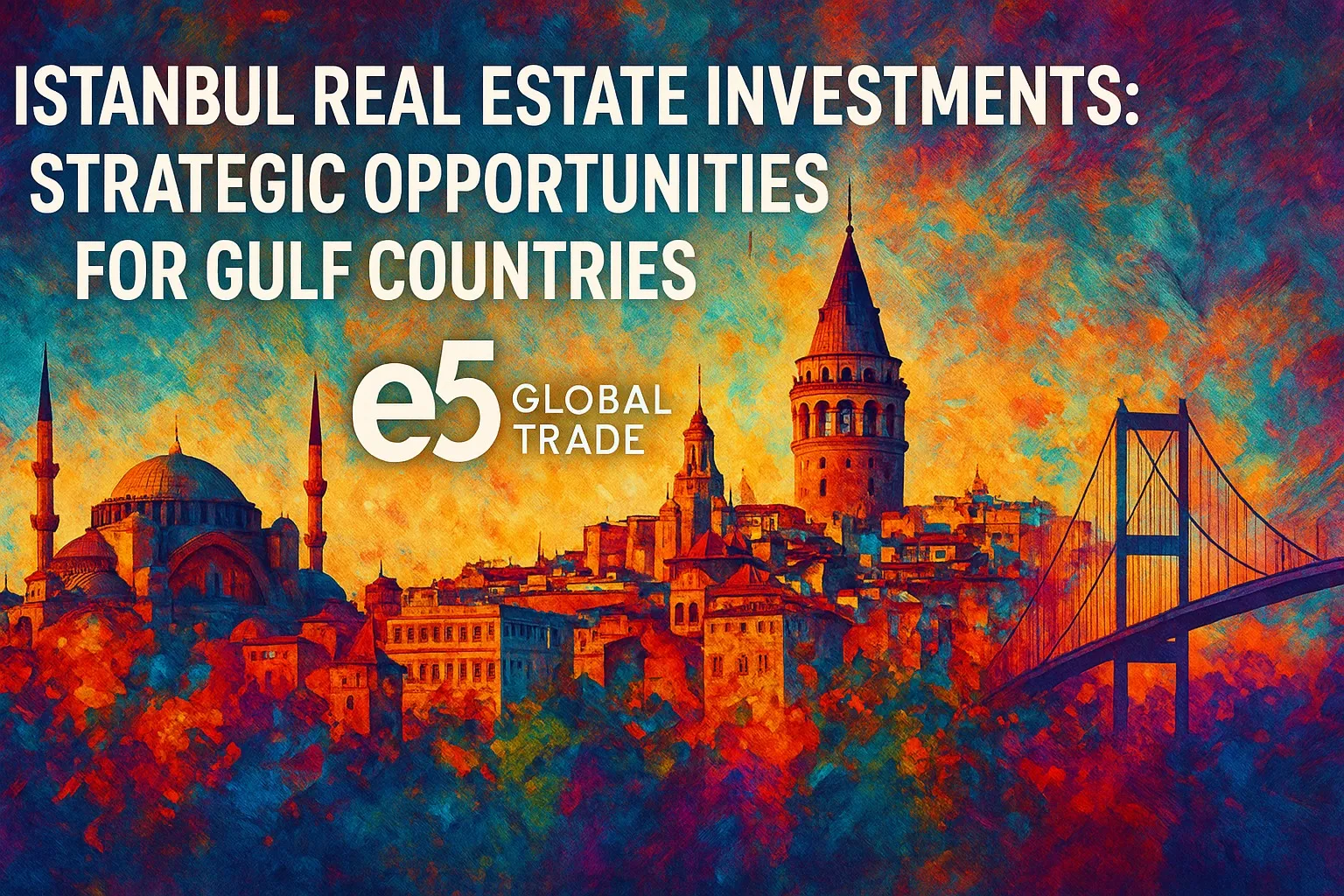Istanbul Real Estate Investments: Strategic Opportunities for the Gulf Countries: Istanbul, with its geographical location and economic dynamism, has become one of the most attractive real estate destinations for investors from the Gulf States (Kuwait, Saudi Arabia, the United Arab Emirates, Qatar, Oman, and Bahrain) in recent years. Wealthy capitalists from these countries choose Istanbul as a strategic investment center based on factors such as stable returns, currency protection, and quality of life. 1. Geographic and Cultural Proximity: A Natural Connection: Istanbul, located at the intersection of Europe and Asia, is a city with strong historical, religious, and cultural ties to the Arab world. For Gulf investors, the following factors make Turkey a "close but different" alternative: Turkish-Arabic similarities, a lifestyle aligned with Islamic culture, Halal food, mosques and family-oriented social structures, and a 3-4-hour commute by plane. Investors from Dubai and Abu Dhabi, in particular, see Istanbul as a "more accessible, more affordable, and more sustainable" investment destination. Currency Value Protection and Anti-Inflation Investment: Due to rising global inflation and currency fluctuations, particularly after 2020, individual and institutional investors in the Gulf countries are choosing to protect their assets through tools such as purchasing real estate in Turkish Lira, obtaining rental income in USD/€, and publicly supported investment programs (e.g., becoming a Turkish citizen – a minimum of USD 400,000). Since purchasing real estate in Istanbul worth over USD 500,000 grants Turkish citizenship, this is particularly valuable for wealthy Gulf families planning a "second country." High Return Potential and Increasing Demand The real estate market in Istanbul, especially between 2021 and 2024, offers average annual returns of 15–25% in housing and office projects in areas such as Bebek Municipality, Maslak, Levent, Kadıköy, Beşiktaş, Çamlıca, and Beyoğlu. Short-term rental (Airbnb) models in touristic areas (Taksim, Sultanahmet, Bosphorus, Princes’ Islands) increase rental incomes up to 20–30% with the increasing number of Gulf tourists. In new development areas such as Yenişehir, Ataköy, Sancaktepe, and Pendik, real estate values are rising rapidly thanks to public infrastructure investments (metro, schools, hospitals). 📊 Data: More than 40% of foreign investments in Istanbul in 2023 came from the Gulf countries (Türkiye Emlak Konut Bankası - TEB, 2024 report). 4. Institutional and Government-Level Support: The Kuwaiti and Saudi Arabian embassies in Turkey are promoting direct investment through real estate fairs held in Istanbul. Large companies such as Dubai's Emirates Real Estate Group and Emaar Properties have established multi-million dollar project portfolios in Istanbul (e.g., Emaar's Istanbul Sapphire and Marmara Park projects). In line with Saudi Arabia's Vision 2030 policy, Gulf investors have begun to see Istanbul as a "summertime secondary housing and health tourism center." Quality of Life and Education/Opportunities: Gulf families see Istanbul as a suitable destination for their children's education and family life: international schools (British, American, French, and German systems), high-quality healthcare (JCI-certified hospitals), safe and modern neighborhoods, and cultural and entertainment opportunities (museums, theaters, shopping malls). These factors are critical for Gulf families seeking not just an investment but also a permanent place to live. Conclusion: Istanbul: The "Choice of the Moment" for Gulf Investors: Istanbul has become more than just a city; it has become a strategic capital defense tool and a living space for the next generation. The Gulf countries' economic diversification efforts, the diversification of energy revenues into investment, and Turkey's ever-growing real estate market form a strong bridge connecting these two regions.
E5 Global Trade | Yazılar
Istanbul Real Estate Investments: Strategic Opportunities for the Gulf Countries


